Electrolytes have been a buzzword among health enthusiasts and gymgoers for decades. But what are electrolytes? And how do they help during fasting? In this article, we’ll explore all things electrolytes and whether or not you should be adding electrolytes to your daily intake while fasting.
Before taking an electrolyte supplement or changing your diet, talk to your doctor first. Your professional medical practitioner will know if dry fasting is right for you.
They’ll also tell you if taking electrolyte supplements will have any adverse effects when taken with prescribed medications or cause any allergic reaction in the person taking them. And never fast beyond 72 hours. If you’re planning on fasting beyond the 72-hour mark, make sure that you are monitored closely by a trained medical professional.
What are Electrolytes?
To understand how electrolytes work, you should know what they are. Electrolytes are electrically charged minerals that conduct an electrical current once combined in a glass of water.
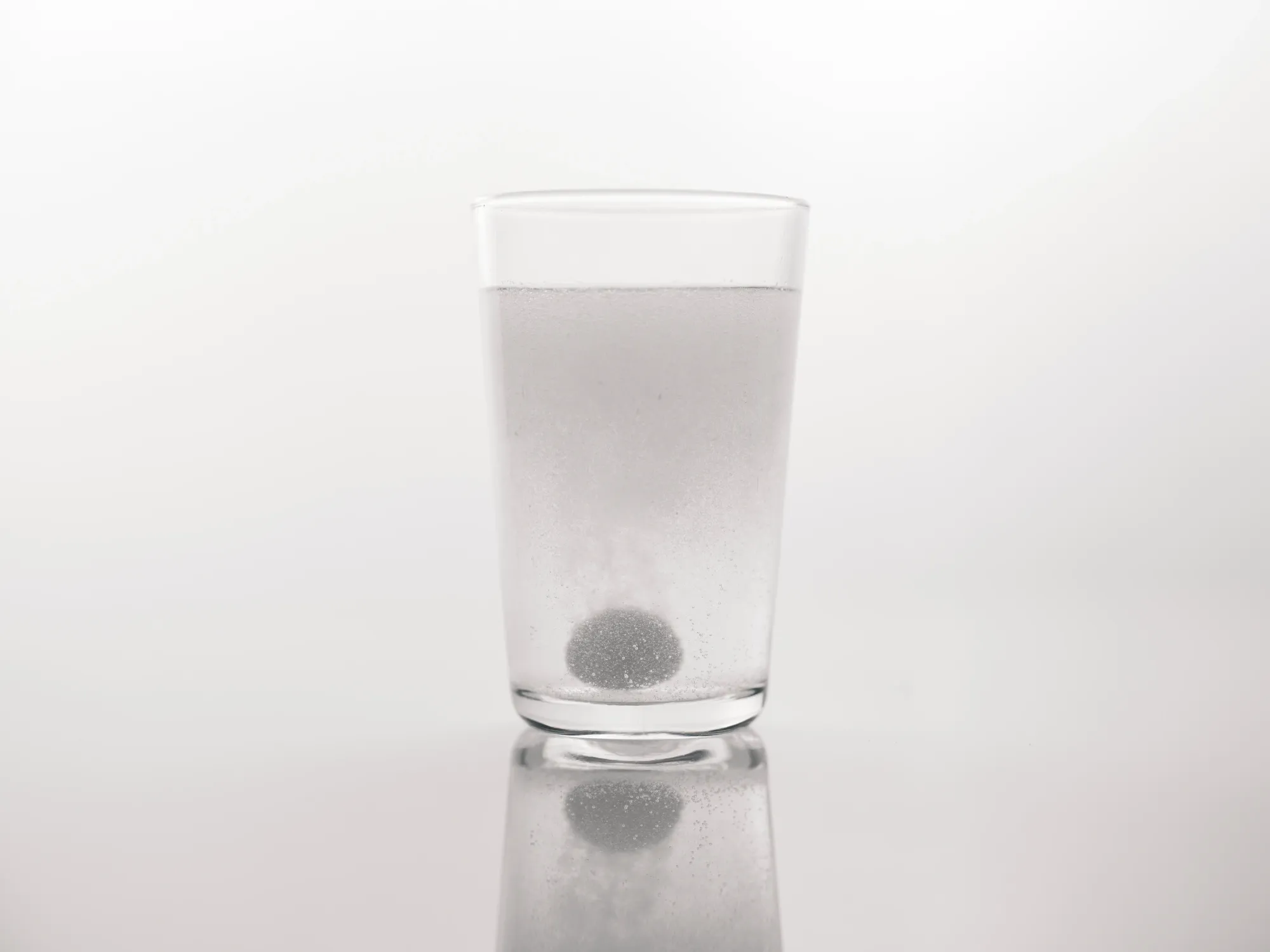
We typically get electrolytes from the foods we eat and the beverages we drink. They are crucial to almost all of the systems of the body that need a small electric charge. Electrolytes also play an essential role in hydrating the body.
An adequately hydrated system means that muscle function, the immune system, and brain cells function properly. Simply put, it means that your body is functioning closer to optimal performance. Without enough electrolytes, the body’s systems are placed under pressure.
Are Electrolytes Important for Fasting?
During fasting, your electrolyte levels drop because you’re not getting them from food. You do have a small number of electrolytes stored in tissues throughout your body, but those stores are usually depleted during a fast.
Depending on how the fast affects your body weight and body mass index, you could lose all of these electrolytes within the first day or two.
Here are the most common reasons why electrolytes are essential during a fast:
- The human brain operates by generating electrical charges. The movement of electrolytes supports these charges. Without this movement of electrolytes, it might compromise the function and health of the brain. In clinical trials, a lack of electrolytes can cause mood changes and problems with cognitive function. Memory and thought processing are affected soon after the body’s electrolyte stores have been depleted.
- Electrolytes are essential for helping muscles contract or relax. Food deprivation also means electrolyte deprivation which could result in painful muscle cramping.
- Electrolytes help keep a body hydrated, especially during a fasting period. Whether you are doing intermittent fasting, wet fasting, or dry fasting, electrolytes help ensure proper fluid balance. Without these electrolytes, a fluid imbalance may occur, and dehydration could set in.
- Your blood PH will remain safe and healthy with a proper intake of balanced electrolytes. Without enough electrolytes in your system, your body’s PH can be thrown out of balance and become too acidic. When this happens, even for a short period, it may affect how well your organs and immune system function.
- In some cases, an electrolyte imbalance could also be fatal. A person who loses vital electrolytes while intermittent fasting, wet fasting, or dry fasting must avoid high-impact exercises or other activities that cause sweating. Losing more fluids during a fast means losing more electrolytes. If the electrolyte imbalances reach a dangerously low level, the body could go into shock.
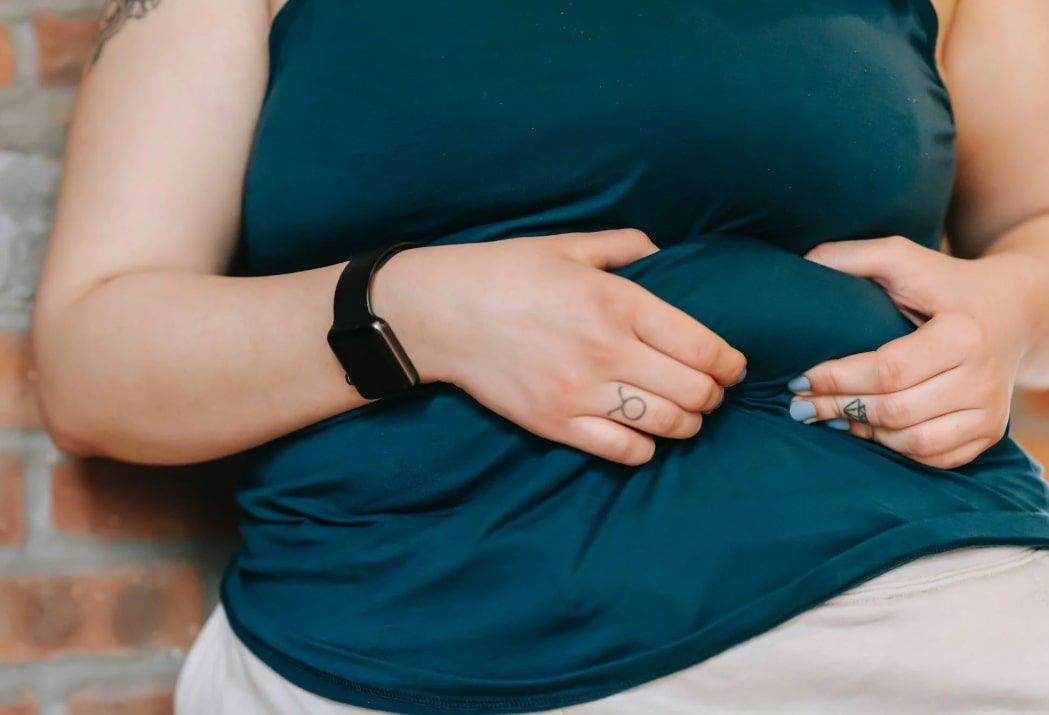
Electrolytes depletion
If you’re doing prolonged dry fasting, your body goes through a period of ketosis. Ketosis is defined as a metabolic state where the body begins burning fat stores for fuel instead of glucose consumed with food. Many people fast for different reasons.
The main reasons for fasting are weight loss and reduced inflammation, but weight loss and inflammation aside, your fluid loss has to be carefully monitored.
Since your food and fluid intake will be zero during a dry fast, you will quickly run out of electrolytes. Once your body’s stores of electrolytes are depleted, you start to feel the symptoms of electrolyte deficiency.
Although these symptoms shouldn’t cause any health concerns if left untreated can develop into serious problems. Check with your doctor if the following symptoms worsen:
Headaches
As you continue your intermittent fasting program and lose electrolytes, headaches are bound to happen. It is the body’s way of saying that you’re dealing with dehydration and need more electrolytes.

Fatigue
Extended fasting will make a person feel slightly sluggish as the body begins working toxins out of the system.
A systematic review of people’s dry fasting during the third week of Ramadan also showed a few symptoms associated with a lack of electrolytes, such as fatigue, headaches, and more. It should be noted that people fasting during Ramadan also saw a few beneficial results, such as weight loss and less inflammation in the body.
Irregular Heartbeat
If the following electrolytes are out of whack, they can affect heart health and cause heart palpitations and irregular heartbeats:
- Low potassium levels may create relatively stable arrhythmias, whereas high levels may quickly lead to deadly heart arrhythmias.
- Sodium, calcium, and magnesium imbalances also may place the person’s heart at risk for arrhythmias.
Muscle Cramps
You’ll see many electrolyte supplements on the store shelves promoting a way to combat muscle cramps. Electrolyte supplements like powders and drinks are specially formulated to stabilize urinary sodium chloride levels. When these levels drop, the results are muscle cramps. According to these electrolyte companies, these electrolyte supplements will prevent muscle cramps because they supply the body with all the necessary electrolytes.
Blood Pressure
During dry, wet, and intermittent fasting, electrolytes are depleted. When potassium levels drop, and sodium levels rise, it could result in high blood pressure.

Nausea or Stomach Upset
One of the more common symptoms of a drop in fasting electrolytes is nausea. If the levels of these electrolytes drop too low, the body can experience bouts of vomiting. If electrolyte levels are too high, it can also produce a stomach upset. The key is to have a balanced amount of electrolytes in your system to prevent feelings of nausea.
A General Unwell Feeling
It goes without saying that if you replenish the minerals in your body, such as calcium and potassium, you begin to feel better. With dry, wet, and intermittent fasting, electrolytes are depleted. Depending on a person’s body composition, they can feel unwell after a day or two.
Prevention of Symptoms With Fasting Electrolytes
As you lose electrolytes while fasting, you can prevent these symptoms by doing a few things. You can switch from prolonged to intermittent fasting, where you’ll be fasting for short periods.
You can also supplement intermittent fasting with an electrolyte supplement or consume electrolyte drinks periodically throughout the fasting period. This way, you’ll get all of the essential electrolytes without any of the electrolyte deficiency symptoms.
How To Avoid Electrolyte Deficiency While Intermittent Fasting?
It is best to avoid an electrolyte imbalance while fasting. You’ll also avoid many symptoms that go with it, like muscle cramps, low blood pressure, headaches, and more. To maintain proper electrolyte levels, here are some things you can do.
Have a Better Diet Before, During, and After Your Fast
One of the best ways to improve your electrolyte levels during a dry fast is to eat food before and after your fast that is rich in vitamins, minerals, and essential nutrients. Food like leafy greens, seeds, and whole foods like rice and beans are ideal.
Suppose your daily diet before your fast is already full of healthy nutrients. In that case, it will supply your system with more electrolytes to carry you through the fasting period without experiencing too many problems. And eating these foods immediately after your fast will begin to replenish any lost stores of electrolytes.

If a person is doing intermittent fasting or time-restricted feeding, they can incorporate these foods during their fasting window or the time they are allowed to eat or drink during a fast. Avoid heavily processed foods full of salt and chemical additives that don’t supply the body with enough proper nutrients.
Water Consumption, Electrolyte Drinks, and Bone Broth
If you’re doing a dry fast, your water intake is zero. This includes not drinking water, lemon water, juice, or sports drinks. In some cases, dry fasting means no contact with water at all. No running your hands under tap water, taking a shower, or brushing your teeth with water. This means that staying hydrated might become a problem for some.
Water Intake
Drinking enough water during the day is one of the best ways to ensure and maintain proper electrolyte balance without increasing your calorie intake during your fast. Consuming a bit of water will also stop the effects of dehydration during your fasting hours. This is important for people who are active or live in hotter climates and may lose water due to increased physical activity or increased temperatures.
Sports drinks, Electrolyte Powders
Depending on the strict nature of the fast, you can include some form of electrolyte drink to remain hydrated and keep your electrolytes in balance. You can get enough electrolytes during a fast with a simple solution of lemon and water or salt and water.
You can also add electrolytes with electrolyte-rich powders and sports drinks. Most of them are low in calories but high in electrolytes and minerals such as magnesium and calcium. This means you can add a few calories without entirely breaking your fast and get enough electrolytes to stave off dehydration and any symptoms of an electrolyte deficiency.
Bone Broth
If a person does intermittent dry fasting, they consume no food or liquids during the fasting hours. However, some will have fluids during eating hours, and many will choose bone broth.
Not only is bone broth loaded with minerals and vitamins, but it also contains essential electrolytes. Bone broth is a great way to increase electrolytes without drastically increasing your calorie intake.

How to Make Electrolyte Water for Fasting?
One of the more popular ways to get enough electrolytes during a fast is with Snake Juice. This beneficial drink is part of the Snake Diet, designed to promote a fasting-focused lifestyle and proactive eating.
When following the Snake Diet fast, the only thing you can consume during the fast is Snake Juice. It is a way to keep the body hydrated while also experiencing the benefits of fasting, including weight loss and reduced inflammation.
During the Snake Diet, proactive eating is promoted. This means only having food during intentional and deliberate eating windows. This window lasts only 1-2 hours, and the meals are meant to help a person achieve weight loss goals.
Let’s take a look at the Snake Juice recipe. It’s easy to make, and it will help you get all the electrolytes you need, and the best part is you can make enough to drink throughout the day to ensure you remain hydrated. We’ve included the recipe for 2 liters and 1 liter of water.
Water – 2L / 67.6 oz
- Potassium chloride =1 tsp (No Salt)
- Sodium Bicarbonate = 1 tsp (Baking Soda)
- Sodium chloride = 1/2 tsp (Himalayan Pink Salt)
- Magnesium Sulphate = 1/2 tsp (Food Grade Epsom Salts)
Water – 1L / 33.8 oz
- Potassium chloride =1/2 tsp (No Salt)
- Sodium Bicarbonate = 1/2 tsp (Baking Soda)
- Sodium chloride = 1/4 tsp (Himalayan Pink Salt)
- Magnesium Sulphate = 1/4 tsp (Food Grade Epsom Salts)
Table salt contains around 2,360 milligrams of sodium per teaspoon. However, a teaspoon of Himalayan pink salt contains around 1680 milligrams of sodium. This means Himalayan pink salt is about a third less than regular table salt.
Popular Electrolyte Supplements for Fasting
As we’ve already pointed out, there are loads of fasting supplements on the shelves in grocery and health stores and pharmacies. These products claim to supply your body with all the necessary electrolytes while fasting. The supplements claim that it’s essential to use these supplements to be healthy and avoid the symptoms of electrolyte deficiency.
1. Vali Electrolyte Salts
This fasting electrolyte supplement is designed to provide quick recovery, enhanced endurance, and peak performance. Made from Himalayan pink salts, you’ll stay hydrated and get all the essential minerals and nutrients to support muscle function and boost energy levels.
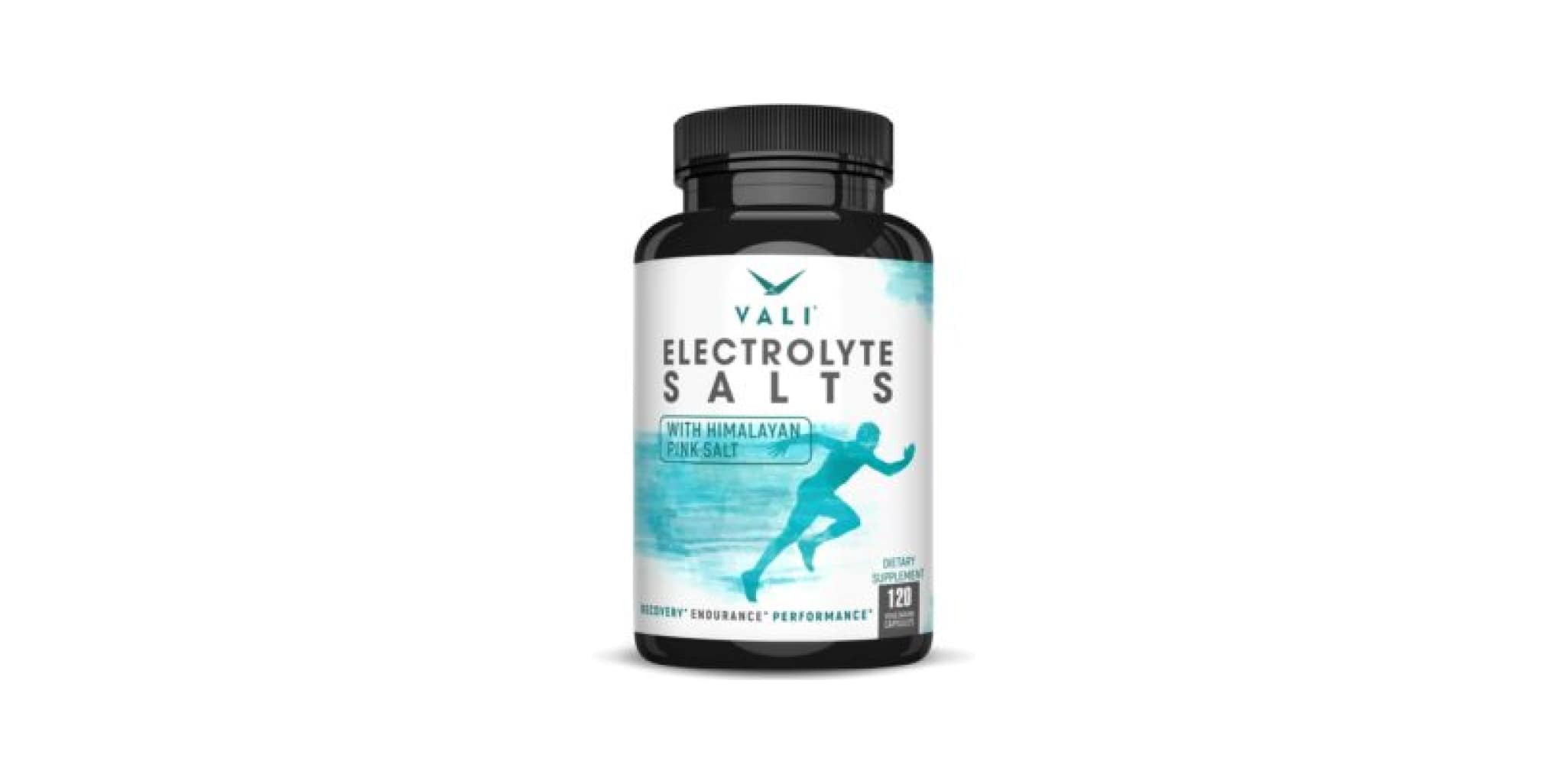
2. Salt Stick
This electrolyte supplement is suitable for a vegetarian diet. Salt Stic will keep electrolyte levels up, reduce muscle cramping and help protect your stomach during intermittent fasting. Rich in minerals and nutrients you can take a capsule during your fast.
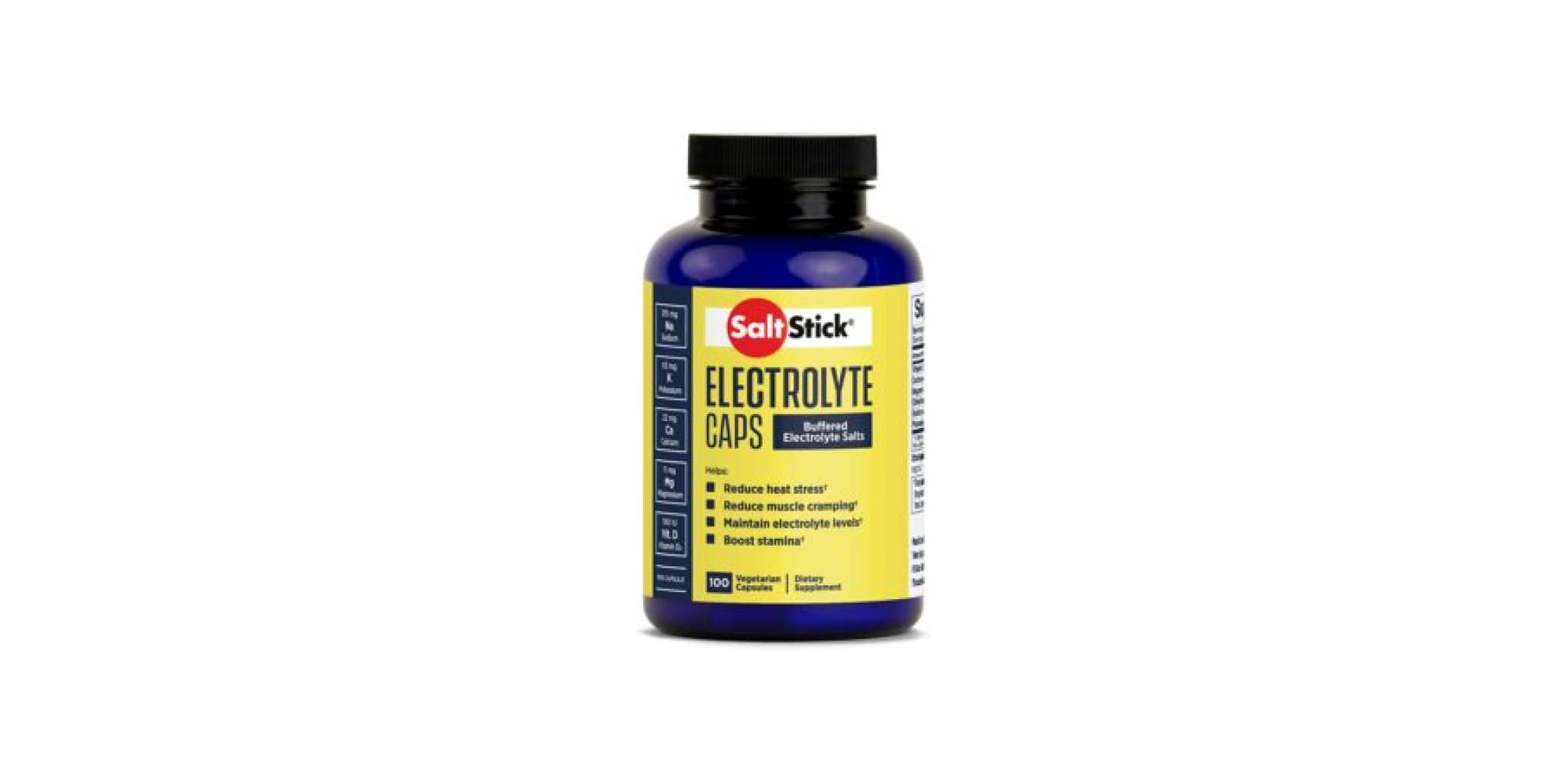
3. Liquid IV Hydration Multiplier
The Liquid IV Hydration Multiplier is an energy drink containing all important electrolytes and essential vitamins, including vitamins B3, B5, B12, and C. You can take these easy-to-use packets while traveling to boost your system quickly.
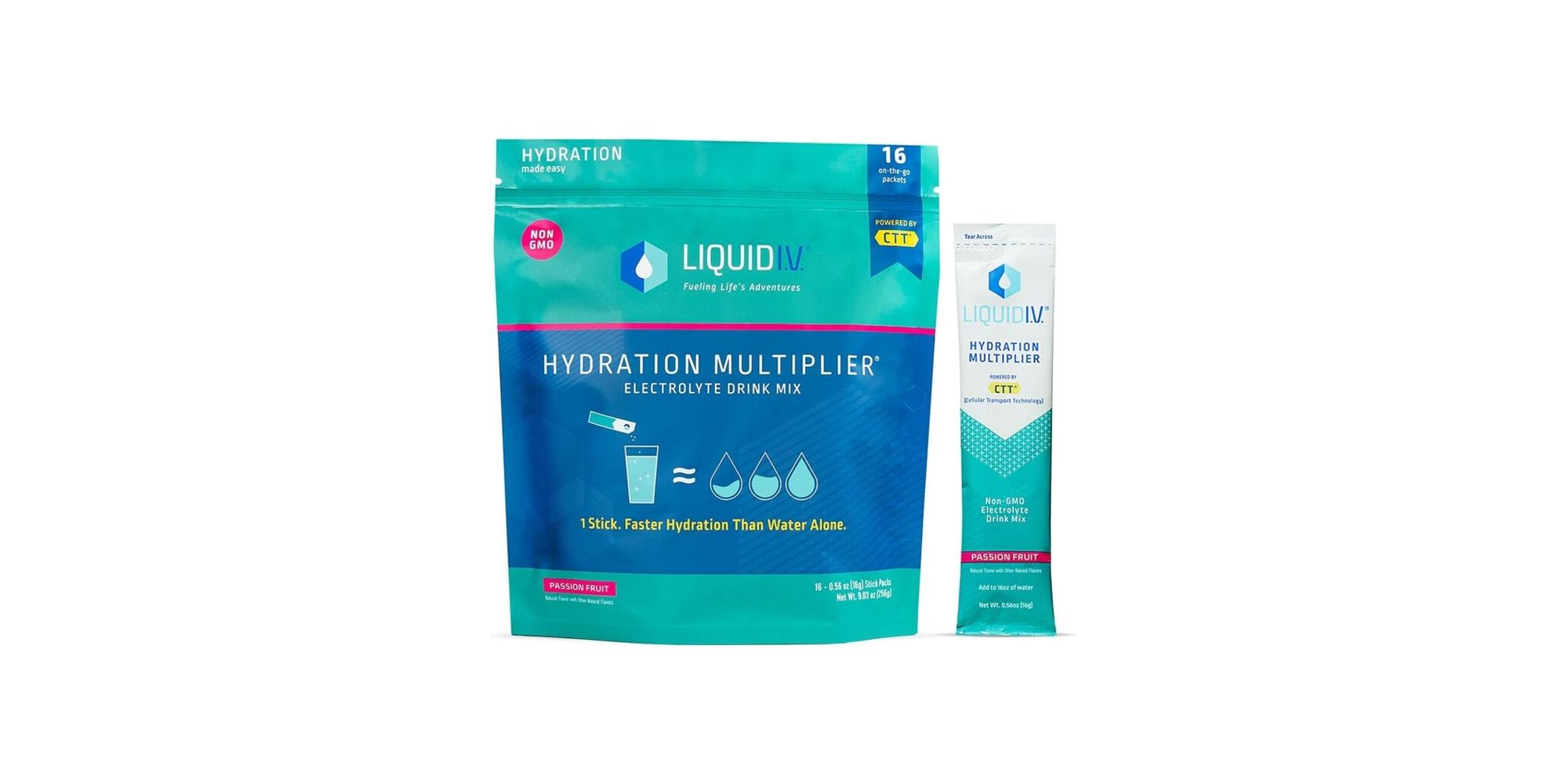
Risks Associated With Taking Electrolytes
We’ve looked at how electrolytes help during a fast but are there any risks associated with taking electrolyte supplements? In general, taking electrolyte supplements doesn’t pose any real health concerns.
However, the key is to have a diet of moderation. Too many essential minerals and electrolytes can throw the body’s systems out of balance and create many health-related problems, even in healthy adults.
For example, putting too much table salt on food that is already salty can lead to a condition called hypernatremia. Too much sodium can lead to dizziness, vomiting, and other symptoms.
Unfortunately, there’s no real way to tell if you have healthy electrolyte levels in your body unless you go for blood tests and your healthcare provider provides a specific treatment to balance those levels.
Many people who do dry fasting will want to increase their water consumption to combat the signs of dehydration. At the same time, others will take electrolyte drinks instead since dehydration is directly linked to an electrolyte imbalance.
Those who do dry, wet, and intermittent fasting for weight loss will most likely need more electrolytes in their system as the body starts burning fat cells for fuel.
Although there is no real threat of developing electrolyte poisoning, there is still some risk. It is worth noting that too many electrolytes in your system can be just as bad as having too few electrolytes in your system.
Here are some conditions to look out for if your electrolyte levels are too high:
- Hypernatremia – If you take too much sodium, you can become thirsty and confused, and in some more severe cases, you can even have seizures.
- Hyperkalemia – This is a condition that occurs if you take too much potassium, and in extreme cases can experience symptoms like heart arrhythmia or muscle weakness.
- Hypercalcemia – This is a condition that occurs if you take too much calcium. In extreme cases, the person may experience symptoms like abdominal pain or excessive thirst.
- Hyperchloremia – This condition occurs if you have too much chloride in your blood. When you have hyperchloremia or high levels of bicarbonate in your blood, an underlying health condition is usually present.
- Hyperphosphatemia – This condition occurs when you have high phosphate levels in your body. This condition doesn’t usually affect healthy adults but those with severe kidney conditions. Hyperphosphatemia can sometimes lead to muscle cramps, spasms, and even bone weakness.
- Hypermagnesemia – A condition where high magnesium levels in the blood can lead to low blood pressure. In some severe cases, this condition could be fatal.
How to keep a balance?
Getting all of the nutrients we need during prolonged fasting might be challenging. After all, the number one fasting goal for many is to lose weight. While others fast for religious reasons like Ramadan fasting or Islamic fasting.
However, Ramadan fasting, or Islamic fasting, lasts only during daylight hours. Before sunrise and after sunset, you can consume more food and liquids.
It also depends on the diets that we follow when not actively dry fasting. While some practice veganism or vegetarianism, others are drawn to a ketogenic diet. Regardless of which diet plan a person follows, getting nutrients from various food groups is essential for fulfilling our need for various electrolytes.
If our diet lacks in supplying us with all of the recommended amounts of electrolytes, then electrolyte supplements will help fill in the gaps and prevent electrolyte deficiency.
Conclusion
A fast is meant to help “reset” your system, allowing the organs to repair any damage and your system to clean itself. You’re meant to feel lighter and cleaner and focus better.
Electrolytes while fasting is essential, especially during a dry fast. Eating a well-balanced diet before you begin your dry fast will supply your body with enough electrolytes to get through 48 hours without adequate food intake or drinking water.
It is important to never go past 72 hours without being carefully monitored by a medical professional. If you experience any of the negative symptoms of dehydration or electrolyte deficiency, contact your doctor right away.
Resources
- Fasting-a review with emphasis on the electrolytes
- Neurologic manifestations of major electrolyte abnormalities
- Muscle cramp? Drink electrolytes, not water, study shows
- Fluid and Electrolyte Balance
- Electrolytes — What Are They? What Happens If You Don’t Have Enough?
- Fasting headache
- Effects of fasting on endurance exercise
- Worsening of migraine headache with fasting Ramadan
- Heart failure and electrolyte disturbances
- The most frequent electrolyte disorders in the emergency department : what must be done immediately?
- Fasting: How to Guide
- Electrolyte Water: Benefits and Myth
- Effect of a carbohydrate-electrolyte beverage, lemon tea, or water on rehydration during short-term recovery from exercise
- Bone Broth Diet Review: Does It Work for Weight Loss?
- SNAKE DIET – GETTING STARTED
- All About Electrolyte Disorders



